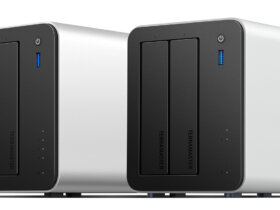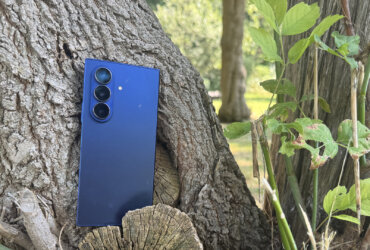Audio company beyerdynamic will be sold to Chinese manufacturer Cosonic. Following the official announcement, we spoke with Rich Campbell, Managing Director for North America at the company, who confirmed the news and talked about what this means for the company going forward.
The deal, which is still subject to regulatory approvals and will take at least a few months to officially close, is reportedly for a purchase price of about 122 million Euros, equivalent to about US$139 million or just under $200 million Canadian dollars, according to Heise Online, which first reported the news.
Founded in Germany in 1924, more than a century ago, beyerdynamic has been a dominant force in the audio space. known for its studio headphones, some of the brand’s latest products include the DT 990 Pro X Studio headphones, DT 770 Pro X Studio headphones, and the open-back MMX 330 Pro gaming headset. The company’s core business, however, is in the pro audio space.
“[Cosonic is] an entity out of China that’s been building audio products for brands like JBL, Soundcore, Beats, and some others,” notes Campbell. Heise reports that Cosonic will leverage the brand to help with its own international expansion, strengthening its presence in regions like Europe and North America. “The family that’s owned beyerdynamic for over 100 years decided to go through [with the sale],” Campbell confirms. “Really what it allows us to do is to be able to have additional financial resources at our disposal to continue to develop new products…and further our strategy in building out the brand.”
Campbell confirms that the management team will remain in place, and the focus will continue to be on pro audio along with gaming and consumer products. The lion’s share of the business will remain within the pro audio space.
beyerdynamic will still operate as an independent company based out of Germany, and the products that are made in Germany today will continue to be developed and manufactured there. Despite rising tensions between the U.S. and China, Campbell says the company wasn’t hesitant to sell to a Chinese company because the majority of the products will still be made in Germany. “Whatever additional products that we add into the portfolio that are built in China, we’ll find ways to make it work. I feel confident that we’re going to be able to continue to do what we’re doing and build off that.”
Campbell is confident that Cosonic will continue to nurture beyerdynamic’s century-long history and it’s long-held reputation among pro audio purists. “[Cosonic’s] intent is not to do anything to disrupt [the legacy]. That’s part of the value of what they acquired. The only significant change that I think we’ll see will be the access to additional resources to be able to increase our portfolio and increase our brand awareness to increase our ability to go to market.
“The whole reason they’ve invested and spent the money to acquire us,” he continues, “is to make the brand stronger and build it out. So, there’s an opportunity there for us to be able to harness the resources that they are able to provide for us to be able to do that.”
beyerdynamic isn’t alone in its decision to sell. So many other AV brands have joined consortiums or have been acquired over the last several years, raising questions about the future of the industry as a whole. Flailing sales, unexpected roadblocks like the COVID-19 pandemic, and more recently, the introduction of inflated tariffs, have made the market more challenging than ever. We asked Campbell for his thoughts on market consolidation as a whole.
“I think it allows brands to remain competitive,” he says. “The challenges we face in the marketplace continue to evolve, and it’s sometimes difficult to anticipate what those challenges may be. If you’ve got the resources at your disposal, [it makes sense] to continue to innovate, build up the brand, and continue to meet the needs of consumers within the categories that you participate in. Being a part of a bigger entity gives you that flexibility to be able to respond to those market conditions and the demands of the consumer.”
In the case of beyerdynamic, Campbell is positive that it’s a good thing. “We’re well-positioned to be able to take advantage of this opportunity. I think it really builds our future.
“After the close,” Campbell concludes, “we anticipate being able to further develop our business beyond where we are today, which is exciting for me and for the rest of the team as well.”
The acquisition should be completed in 3-5 months, subject to regulatory approval. The purchase price is subject to change.





